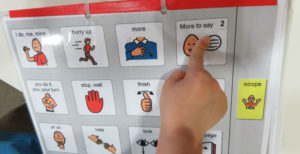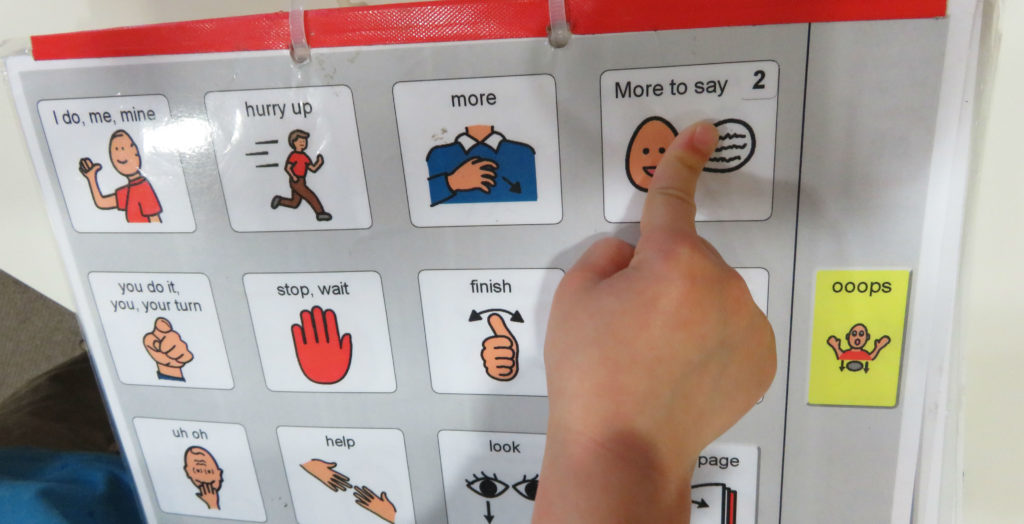Supporting children to have something to say
 When a child experiences significant difficulties learning to talk, parents worry about what is the best thing to do. The main questions facing them at this time are:
When a child experiences significant difficulties learning to talk, parents worry about what is the best thing to do. The main questions facing them at this time are:
- Do I need to try some sort of communication system?
- If I use a communication system will it slow my child’s speech development?
Families need information about what they can do to help their child and when. EarlyEd is therefore supporting Augmentative & Alternative Communication (AAC) Awareness Month and also promoting a free workshop this November.
Workshop: I Can Help My Child Have Something To Say
Date: Thursday 9 November, 10am – 12pm
Venue: Forestville Senior Citizens Centre, Corner of Starkey Street and Warringah Road, Forestville
This workshop will help families be fully informed about what is best for their child and will address the following topics and questions
- Won’t using signs and pictures stop my child learning to talk?
- Augmentative and Alternative Communication – What is it?
- I have been told that my child needs an AAC system?
- We tried and AAC failed – should I try again?
- How can I make it work well?
- Why hasn’t anyone ever talked to me about this?
This free workshop is available thanks to ECIA’s NSW Department of Education (DoE) special grants-in-aid.
Bookings are essential so that we have the right resources and information ready for you.
To find out more information and to book you can contact any of our speech pathologists on 9923 2727 or email: events@earlyed.com.au
Please note: No childcare is available.
AAC Awareness Month
With the roll out of NDIS, EarlyEd has been evaluating what supports are available for parents to help them decide how best to help their child’s communication development. This has provided valuable information to help support families and speech pathologists, especially as families need to plan for AAC support a year ahead under NDIS.
As part of our evaluation of the research, AAC evidenced base practices and current practice, EarlyEd noted that families reported that they don’t know:
- What AAC is
- When to start to using AAC
Additionally, families are not starting to use any supports early in a child’s life and
- Are waiting to see if their child needs it
- See using AAC as a last resort rather than a support
- Don’t feel they can make an informed choice about what AAC system to use
- Don’t feel confident using the system.
Families need information to help them prepare for when they are undertaking an NDIS plan. Families need access to the research that shows that using low tech supports such as Key Word Sign and picture topic boards are shown to increase rates of progress of speech and language development because they act as supports.

